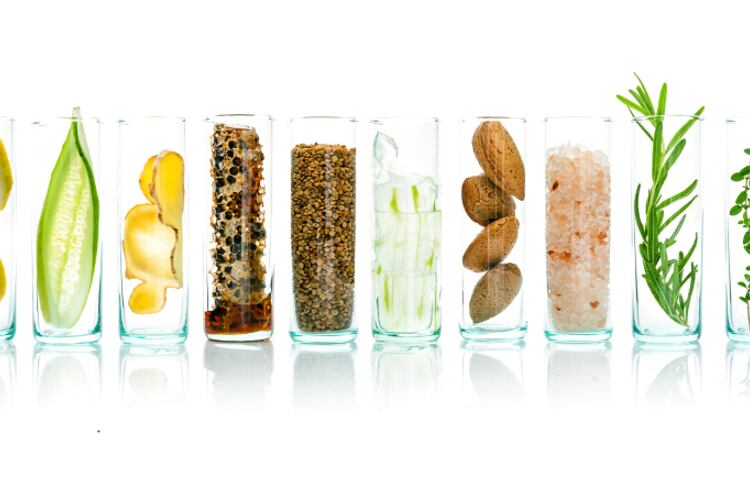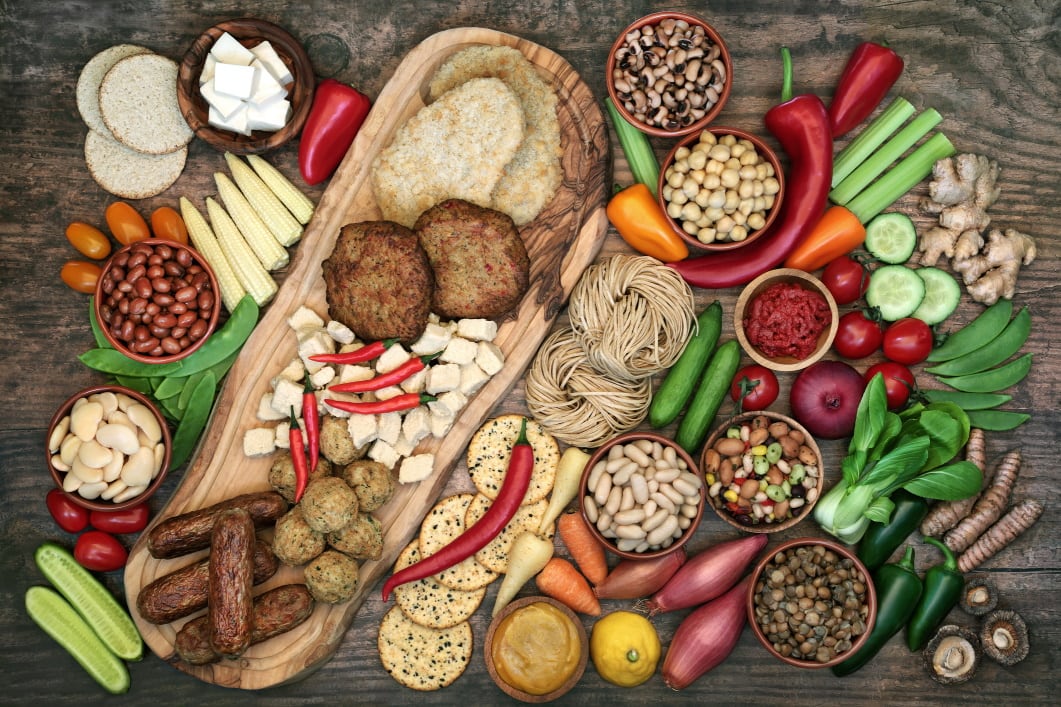The perceived health, environmental and animal welfare benefits of cutting back on animal-based proteins are prompting a growing cohort of carnivorous consumers to turn to plant-based alternatives.
Flexitarianism – traditional meat eaters making a conscious decision to eat less animal protein – is on the rise. According to a recent YouGov survey in the UK, 14% of the population consider themselves flexitarians. Meanwhile, research carried out by plant-based supermarket chain Veganz suggested that 22.9% of Europeans are flexitarian.
“An EU study very recently showed nine out of ten purchases in the meat substitute category are made by flexitarians. That’s where the big business and the big impact is,” Tom Johansson, Co-Founder & CEO of Hooked Seafood, told a recent FoodNavigator webinar examining opportunities in plant-based.
For this reason Hooked, a start-up producing soy-based tuna and salmon alternatives, is pitching its products squarely at the flexitarian market. “We are aiming completely at flexitarians… Even if they consume these products less frequently, they are still where the needle needs to be moved and where it is actually moving.”

However, according to Johansson’s assessment, a number of barriers are limiting the appeal of plant-based products to these would-be meat-reducers. Despite high levels of NPD in the alt protein space, Johansson believes that consumers are actually faced with insufficient choice on shelf. “They are coming from a meat category that is very wide and has a lot of offers. When you turn to the vegetable meat seafood substitutes, [there are] very few alternatives and even less that are actually tasty and have high nutrition.”
Eschar Ben-Shitrit, CEO of Redefine Meat, agrees that the current offering in the alt protein category is limiting growth. In particular, he said, if you want to appeal to consumers that also eat meat and dairy, their quality expectations become ‘tougher and tougher’ to meet.
“It’s very easy for consumers to say they are flexitarian, that they are more conscious and looking for alternatives. What we are trying to do is break the glass ceiling of products that in the past were targeted to vegans or [people who] had a very strong inclination to buy a meat alternative and come up with a product that is for meat eaters… Once you nail something that is… delicious and available at scale, then you find more consumer bases that you are going to convert.
“A lot of flexitarians will buy from time to time a meat substitute – but what you want them to do is buy a meat alternative three to four times a week instead of once a month. That is much more difficult.”
From there, the alt meat innovator continued, plant-based can ‘segue into the mass market, which is not flexitarian’. Redefine Meat hopes to help achieve this with its 3D printing technology that enables it to produce a plant-based alternative to whole beef cuts. In a recent blind taste test aimed at meat-eaters, the company was able to achieve a 90% acceptance rate with people reporting its analogues 'looked and tasted like meat'.

The taste and texture challenge
Recent research from Kerry Taste and Nutrition revealed one in three consumers want 'tastier' plant-based options.
The biggest difficulties that formulators of meat and dairy analogues face is producing the taste, texture and mouthfeel people associate with animal-based products.
“The key thing to get flexitarian or meat reducers into the marketplace is flavour and texture,” Adam Kemsley, head of product development at Quorn Foods suggested.
Quorn recently extended its R&D team to take a culinary approach to product development that delivers on flavour. “When we think about flavour, we’ve created a new culinary team of chefs who have Michelin Stars, who’ve worked in Michelin Star restaurants. What they are trying to do is bring the art and science together to really create delicious food going forward. We are heavily investing in consumer scientists and flavour scientists to support them.”
From a texture perspective, Kemsley said Quorn's mycoprotein ingredient – which is created through a fermentation process and ‘keeps the fungi whole’ – delivers a texture ‘very similar to meat’. This, the innovation executive claimed, gives Quorn a ‘competitive advantage in the marketplace’.

Israeli start-up Remilk has come at the question of how to mimic dairy from another direction. Unlike most other alt milk producers, Remilk doesn’t rely on plants but rather microbial fermentation. Again, the emphasis is on producing an end product that is indistinguishable from natural dairy.
“Since we are using a chemically identical milk protein - it’s the same amino acid sequence and functionality of regular cow milk protein - we are able in the final product to mimic the same texture and flavours,” co-founder and CEO Aviv Wolff told FoodNavigator.
However, he continued, the company faces another problem that is a big barrier to winning over new consumers. Price.
Affordability, accessibility and availability
Wolff explained: “In our case… the question is how to scale things up. This is our biggest challenge and where we put most of our focus.

“We can use the accumulated know-how and infrastructures that the bio industry has gained throughout the years but having said that we still need to increase productivity and volumes to reach food-like price points. The challenge is quite huge. Today we are trying to solve this issue using two main strategies, the first one being the productivity of the microbes – how much protein is your microbe able to produce each time you ferment it? – and the second one is the scalability of your production site.”
Hooked’s Johansson sees a similar challenge for plant-based alternatives. “You cannot forget we are competing against the meat industry, which has had over 100 years to scale their production. That is essentially the thing they locked themselves into that is so bad for the planet. We are trying to come in and compete with a highly innovative product at the same price because that’s what the consumer expects.”
An efficient fermentation process is another benefit of mycoprotein, Kemsley highlighted. “What we are seeing at Quorn is a renaissance of fermentation science. If you look at one speck of fungus, we can make 1500 tonnes in 40 days. We are starting to invest more into the science of fermentation so we can improve that efficiency going forward,” he said, noting that the UK meat-free brand is investing £35m to boost capacity this year.
For Kemsley, catering to a flexitarian audience is also about making meat-free an easy and accessible option. And this approach is reflected in Quorn’s channel strategy, which has seen high profile launches such as Gregg’s vegan sausage roll.
“We are trying to make sure our products are everywhere, so it is easy for consumers to make that meat free choice. We want to make sure if its KFC, to fine dining, to eating at home with your family, you can buy a Quorn product for all those occasions.”
What about ‘clean label’?
Plant-based is clearly a food sector trend on the up-and-up.
A recent report from Netherlands-based financial firm ING forecast an annual growth rate of almost 10% for the sector, with sales expected to balloon to €7.5bn by 2025. If that growth rate is maintained, ING pointed out that plant-based alternatives could overtake the sales value of conventional animal products by the mid-2050s.
But is plant-based facing off against another food industry mega trend in rising consumer demand for 'natural' and 'clean label' products?

Research suggests that consumers are put off by ‘unrecognisable’ ingredients, with a recent survey commissioned by Ingredient Communications concluding 81% of consumers consider the label ‘made with natural ingredients’ to be either ‘appealing’ or ‘quite appealing’. Seventy-eight percent felt the same about the label claim ‘free from artificial ingredients’.
So where does this leave a category that is taking plant-based ingredients and using various processes to try and make them mimic their ‘natural’ counterparts?
Redefine Meat’s Ben-Shitrit believes that the answer is clear: Be transparent about the processes fats and proteins undergo to become a ‘really tasty food product’.
“We are proud of the fact that we use safe sustainable ingredients for people and the planet and we convert them in a way that makes the food products very tasty.
“From a professional perspective, there is no problem with overly processed food. A lot of overly processed food contains a lot of chemicals, salt, high levels of saturated fat. It doesn’t mean that the processes… are bad for health.
“Other industries are using the statement of processed food to attack what they see as a threat to their very comfortable position.”




